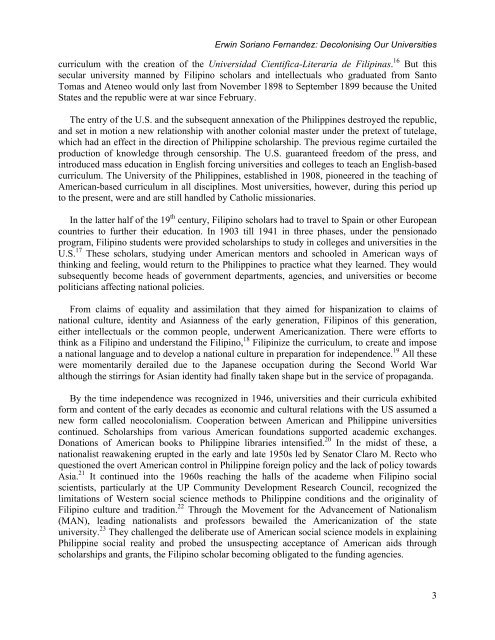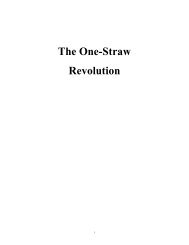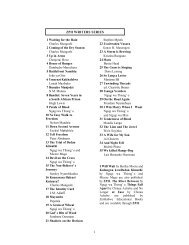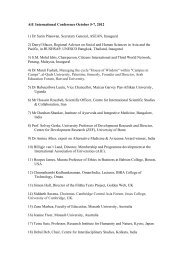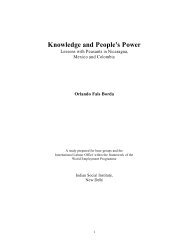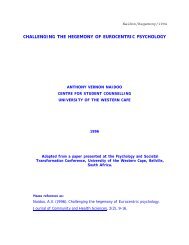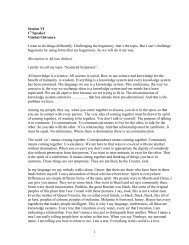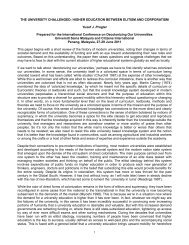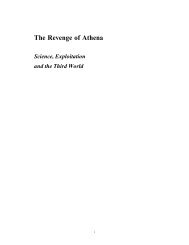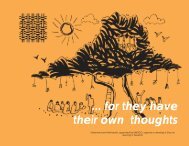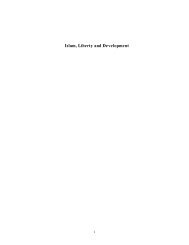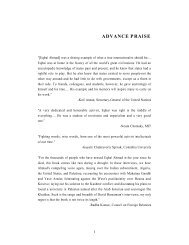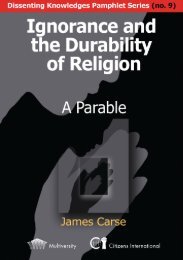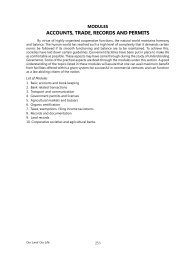1 INTELLECTUAL NEOCOLONIALISM IN THE ... - Multiworld India
1 INTELLECTUAL NEOCOLONIALISM IN THE ... - Multiworld India
1 INTELLECTUAL NEOCOLONIALISM IN THE ... - Multiworld India
Create successful ePaper yourself
Turn your PDF publications into a flip-book with our unique Google optimized e-Paper software.
Erwin Soriano Fernandez: Decolonising Our Universities<br />
curriculum with the creation of the Universidad Cientifica-Literaria de Filipinas. 16 But this<br />
secular university manned by Filipino scholars and intellectuals who graduated from Santo<br />
Tomas and Ateneo would only last from November 1898 to September 1899 because the United<br />
States and the republic were at war since February.<br />
The entry of the U.S. and the subsequent annexation of the Philippines destroyed the republic,<br />
and set in motion a new relationship with another colonial master under the pretext of tutelage,<br />
which had an effect in the direction of Philippine scholarship. The previous regime curtailed the<br />
production of knowledge through censorship. The U.S. guaranteed freedom of the press, and<br />
introduced mass education in English forcing universities and colleges to teach an English-based<br />
curriculum. The University of the Philippines, established in 1908, pioneered in the teaching of<br />
American-based curriculum in all disciplines. Most universities, however, during this period up<br />
to the present, were and are still handled by Catholic missionaries.<br />
In the latter half of the 19 th century, Filipino scholars had to travel to Spain or other European<br />
countries to further their education. In 1903 till 1941 in three phases, under the pensionado<br />
program, Filipino students were provided scholarships to study in colleges and universities in the<br />
U.S. 17 These scholars, studying under American mentors and schooled in American ways of<br />
thinking and feeling, would return to the Philippines to practice what they learned. They would<br />
subsequently become heads of government departments, agencies, and universities or become<br />
politicians affecting national policies.<br />
From claims of equality and assimilation that they aimed for hispanization to claims of<br />
national culture, identity and Asianness of the early generation, Filipinos of this generation,<br />
either intellectuals or the common people, underwent Americanization. There were efforts to<br />
think as a Filipino and understand the Filipino, 18 Filipinize the curriculum, to create and impose<br />
a national language and to develop a national culture in preparation for independence. 19 All these<br />
were momentarily derailed due to the Japanese occupation during the Second World War<br />
although the stirrings for Asian identity had finally taken shape but in the service of propaganda.<br />
By the time independence was recognized in 1946, universities and their curricula exhibited<br />
form and content of the early decades as economic and cultural relations with the US assumed a<br />
new form called neocolonialism. Cooperation between American and Philippine universities<br />
continued. Scholarships from various American foundations supported academic exchanges.<br />
Donations of American books to Philippine libraries intensified. 20 In the midst of these, a<br />
nationalist reawakening erupted in the early and late 1950s led by Senator Claro M. Recto who<br />
questioned the overt American control in Philippine foreign policy and the lack of policy towards<br />
Asia. 21 It continued into the 1960s reaching the halls of the academe when Filipino social<br />
scientists, particularly at the UP Community Development Research Council, recognized the<br />
limitations of Western social science methods to Philippine conditions and the originality of<br />
Filipino culture and tradition. 22 Through the Movement for the Advancement of Nationalism<br />
(MAN), leading nationalists and professors bewailed the Americanization of the state<br />
university. 23 They challenged the deliberate use of American social science models in explaining<br />
Philippine social reality and probed the unsuspecting acceptance of American aids through<br />
scholarships and grants, the Filipino scholar becoming obligated to the funding agencies.<br />
3


